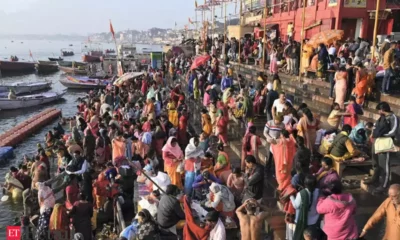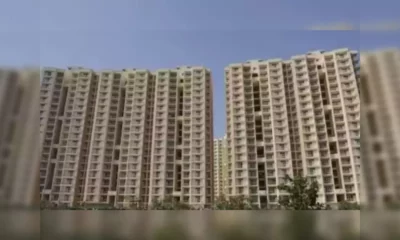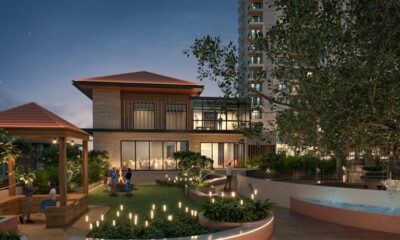News
Key tier-II cities evolve into senior living hubs: JLL


The following is the report by Manish Kumar, National Director – Strategic Consulting, JLL India
As the population of senior citizens in India rises to 118 million in 2016, an increasing number of developers are venturing into the senior living space. Many private entities have already made a foray into this sector. While some companies enter it as part of their corporate social responsibility, charitable organisations are also found in the sector. Realising the upside potential and to have first-mover advantage, a few prominent corporate houses have also forayed into senior living.
Developers are evolving as realisation dawns that they are not constructing old-age homes and that social infrastructure is important to have around their projects. That’s why select destinations in cities like Pune, Coimbatore, Goa, Chennai, Bangalore, Dehradun and some parts of north-India have become senior living hotspots. As these cities have social infrastructure, people who moved out from here in their youth, are coming back after retirement.
Projects have started coming up in the outskirts and suburbs of key metros as well. It is estimated that in around five years’ time, there would be many more projects outside prominent cities. Also, while most of the projects being launched in this space are holistically dedicated to senior citizens, many developers are also launching integrated townships, wherein a proportion of total units are dedicated to senior living along with generic residential developments.
Interestingly, progressive projects now allow all three levels of care in senior housing facilities – independent living, assisted living, skilled nursing care and optionally Alzheimer care facilities – within one campus. However, these facilities may be phased out over a period of time to allow for a continuum of care as residents will benefit from having all facilities in one campus-like environment. Such facilities get termed as continuing care retirement communities (CCRCs).
CCRCs, catering to all the needs of senior citizens in the age bracket of 60 to 80 years, are yet to arrive in India. However, a few corporates have ventured into this space and are planning to come up with such projects.
Market dynamics
Most of senior living projects are concentrated either in budget/ affordable segment or medium-price segment. Owing to smaller ticket sizes, such projects are relatively more affordable for the senior citizens while they also ensure quicker movement of inventory and increased absorption levels for the developers.
Along with affordability, another crucial parameter for the success of a senior living project would include the range of services and amenities being provided by the developer in the project and the operating expenditure for the same. While moving into such a project, senior citizens have to shelve out not only the apartment’s cost but also provision for the day-to-day operating expenses.
The most important service/ facility sought by a senior citizen while moving into a senior living project is the healthcare facility. Therefore, most of the senior living projects have adaycare facility for minor ailments and regular check-ups of their residents. Further, they also tie up with big hospitals in the vicinity (i.e. a 5-8km radius around the project), where the resident can be rushed, in case of a medical emergency, or for treatment of any other major ailment.
In terms of configuration, the unit size of most senior living projects is in the range of 700–1,400 sq ft and most of the units are designed to ensure mobility and assistance to senior citizens in their day-to-day activities. Most of the projects have either 1BHK or 2BHK units. Smaller configurations are preferred because they result in providing sufficient and easily maintainable space to senior citizens at a relatively more affordable ticket price.
-



 News3 weeks ago
News3 weeks agoKW Delhi 6 Mall Onboards New Brands
-



 News3 weeks ago
News3 weeks agoManasum Senior Living Launches IKIGAI GOA, A Senior Living Community in North Goa, in collaboration with Prescon Homes
-



 News2 weeks ago
News2 weeks agoGodrej Properties Sells Rs 3k cr+ Homes of Godrej Zenith, Gurugram, within 3 days
-



 News3 weeks ago
News3 weeks agoBridging India Divide: Top 5 Tier- 2 Cities to Focus On
-



 News3 weeks ago
News3 weeks agoCommercial Realty Gets Tech Savvy: Fast Construction, Enhanced Convenience
-



 News3 weeks ago
News3 weeks agoMultipoint Connection – A Definite Boon
-



 News2 weeks ago
News2 weeks agoRBI’s Status Quo on Key Policy Rates to Help Maintain the Real Estate Growth Momentum, Say Industry Stalwarts
-



 News3 weeks ago
News3 weeks agoSacred Cities See a Retail Boom as Spiritual Tourism Surge: CBRE Report


















